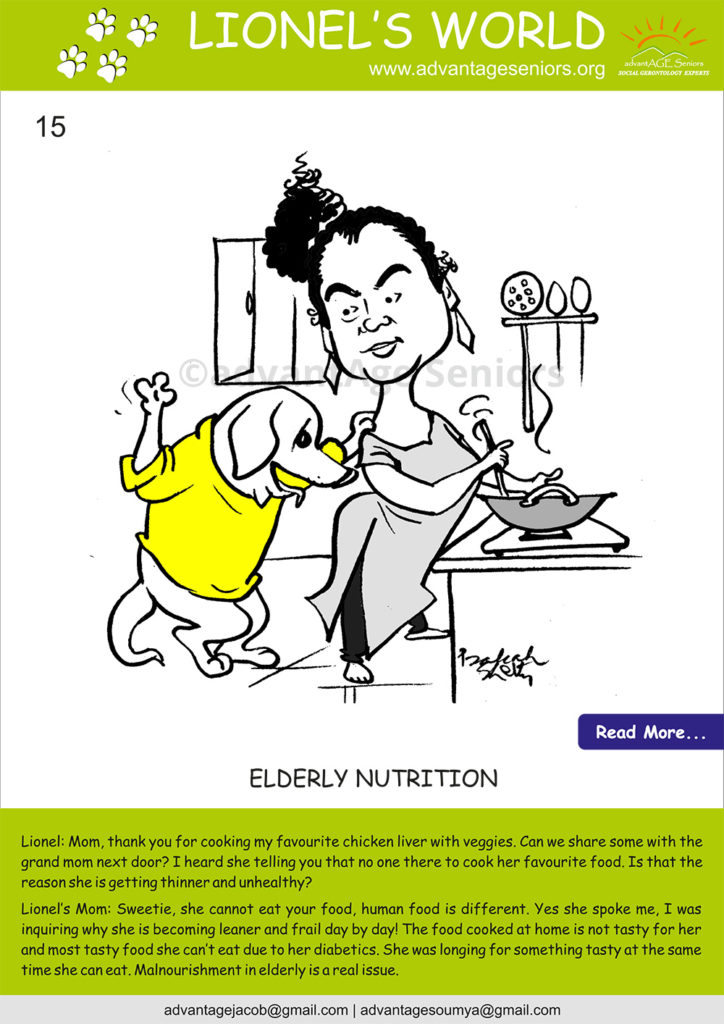
Nutrition is directly proportional to good health. Nutrition in women, children and sportsmen, celebrities for various fitness needs are much stressed aspect.
However when it comes to nutrition in elderly it has very less importance as there is no significant changes noticed. Nutritional needs of elderly are one of the most important aspects as their other care needs.
Majority of older adults are malnourished not necessarily because of poverty. Many urban, financially sound elderly who can afford good food fall under malnourishment due to undereating, eating disorders, physical inability to swallow, wrong choices of food, lack of support systems, and stubbornness about choices of food, etc. Also, many of the elderly who are on multiple medications suffer with contra indications due to medicine to food interactions.
A close monitoring for intake of nutrition is paramount for the elderly to keep them in the pink of health.
Evaluating the physical changes, like weight loss, droopy dry skin, change in skin color, fatigue, any other changes should be noted and see if it is directly associated to nutrition, one can seek any professional help for the same.
Physical disability affecting the intake can also be considered seriously. Not being able to pick up food can tamper with adequate intakes. Lack of appetite or mood swings, onset of mental health conditions can also take a toll on nutrition intake which needs close monitoring.
Degenerative neurological conditions such as dementia or Alzheimer’s disease can also adversely affect nutritional intake. Patients with these conditions lose immediate history and tend to forget that they had food, which may result in overeating or hallucinating that they already had, feeling of fullness may encourage patients to abstain from eating this can also lead to lack of nutrition.
Change in eating habits whether it is quantity or selection of food has to be closely monitored in elderly to ensure seniors get the right nutrition and their health is kept intact.
